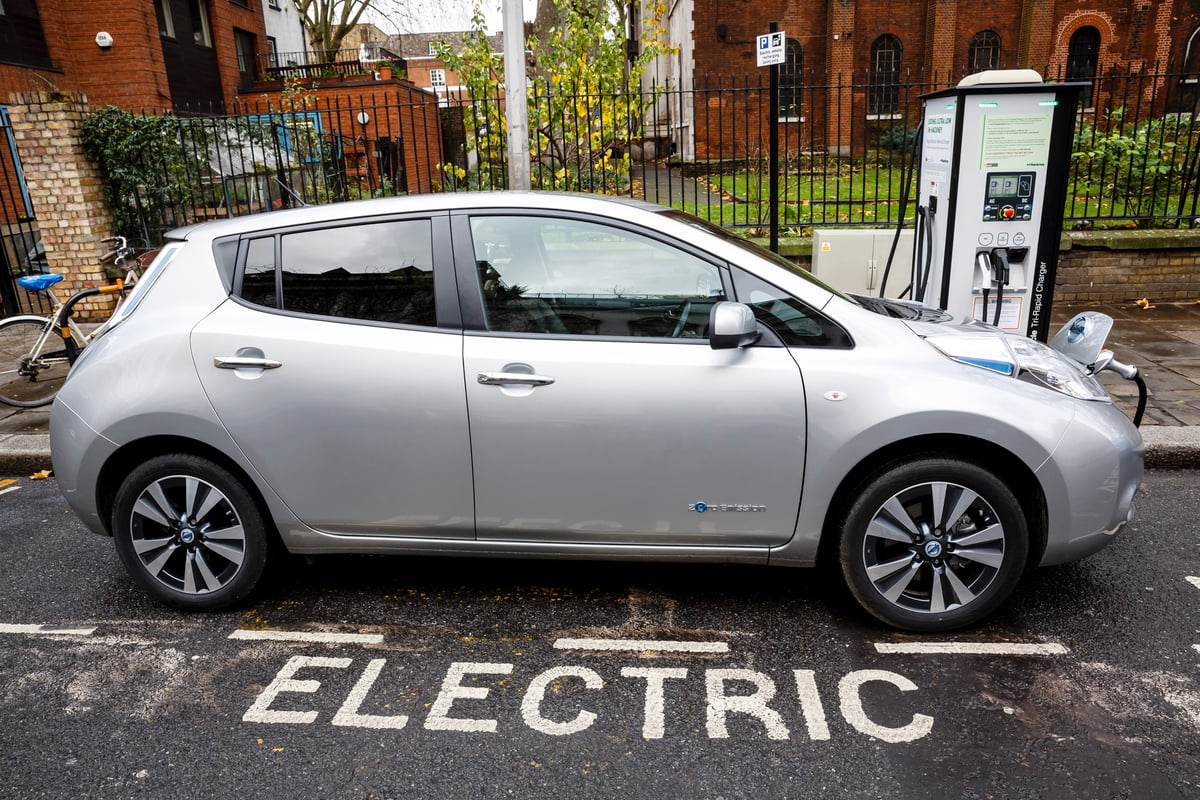Top Stories
UK Government Unveils £1,000 Grants for Electric Car Buyers

The UK government has announced new grants aimed at encouraging the adoption of electric vehicles (EVs), offering potential buyers up to £1,000 off the purchase price of qualifying models starting in 2025. This initiative is part of a broader strategy to accelerate the transition to greener transport and reduce carbon emissions across the country.
The funding will be available to drivers looking to purchase a range of electric cars, enhancing the financial appeal for consumers who may be hesitant due to the typically higher upfront costs associated with EVs. According to the Department for Transport, this grant is designed to make electric vehicles more accessible to a wider audience, thereby contributing to the UK’s climate goals.
Eligibility and Impact on Consumers
To qualify for the grant, vehicles must meet specific criteria set forth by the government. Eligible cars are required to have a maximum purchase price of £32,000 and must meet the performance standards established under the new regulations. As a result, consumers will have a variety of options when selecting their electric vehicles, from compact cars to family-friendly models.
The introduction of this grant comes at a crucial time for the EV market, which has seen significant growth in recent years. Industry experts anticipate that this financial boost will further stimulate demand. With electric vehicle sales on the rise, the UK aims to solidify its position as a leader in sustainable transportation.
The latest initiative also aligns with the government’s pledge to ban the sale of new petrol and diesel vehicles by 2030. By encouraging the switch to electric cars, the government hopes to reduce air pollution and greenhouse gas emissions, contributing to a cleaner environment for future generations.
Broader Implications for the Automotive Sector
The financial incentive provided by the UK government is expected to influence not only consumer choices but also how car manufacturers approach the EV market. As competition increases, manufacturers may be motivated to enhance their offerings, potentially leading to lower prices and improved technology in electric vehicles.
Moreover, the grant scheme is part of the UK’s comprehensive strategy to transition to a low-carbon economy. The government has previously invested significantly in EV infrastructure, including expanding charging networks across urban and rural areas. This support aims to alleviate concerns about the availability of charging stations, which has historically been a barrier for potential EV buyers.
As the UK pushes forward with these initiatives, the automotive landscape is likely to evolve rapidly. The combination of financial incentives, improved infrastructure, and a growing consumer base could position electric vehicles as a mainstream choice for drivers across the nation.
In summary, the UK government’s announcement of the £1,000 grant for electric vehicles is a significant step in promoting sustainable transport. With eligibility criteria focused on affordability and performance, the initiative is set to enhance the accessibility of electric cars and support the country’s environmental goals. As the EV market continues to grow, consumers can expect more choices and better technology in the near future.
-

 Health3 months ago
Health3 months agoNeurologist Warns Excessive Use of Supplements Can Harm Brain
-

 Health4 months ago
Health4 months agoFiona Phillips’ Husband Shares Heartfelt Update on Her Alzheimer’s Journey
-

 Science2 months ago
Science2 months agoBrian Cox Addresses Claims of Alien Probe in 3I/ATLAS Discovery
-

 Science2 months ago
Science2 months agoNASA Investigates Unusual Comet 3I/ATLAS; New Findings Emerge
-

 Science2 months ago
Science2 months agoScientists Examine 3I/ATLAS: Alien Artifact or Cosmic Oddity?
-

 Entertainment2 months ago
Entertainment2 months agoLewis Cope Addresses Accusations of Dance Training Advantage
-

 Entertainment5 months ago
Entertainment5 months agoKerry Katona Discusses Future Baby Plans and Brian McFadden’s Wedding
-

 Science2 months ago
Science2 months agoNASA Investigates Speedy Object 3I/ATLAS, Sparking Speculation
-

 Entertainment5 months ago
Entertainment5 months agoEmmerdale Faces Tension as Dylan and April’s Lives Hang in the Balance
-

 World3 months ago
World3 months agoCole Palmer’s Cryptic Message to Kobbie Mainoo Following Loan Talks
-

 World4 weeks ago
World4 weeks agoBailey and Rebecca Announce Heartbreaking Split After MAFS Reunion
-

 Science2 months ago
Science2 months agoNASA Scientists Explore Origins of 3I/ATLAS, a Fast-Moving Visitor









